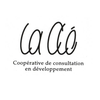note Note générale
The Collective for a Poverty- Free Québec: A Case Study
Introduction
Over the last three decades, a paradoxical situation has been wreaking havoc in industrialized nations. It concerns the simultaneous creation of wealth and poverty which is linked to the profound structural changes occurring in a number of fields, such as new information and communications technologies and the production of goods and services. This has resulted in a form of poverty not seen before in which the gradual material and financial impoverishment of certain individuals is accompanied by their social exclusion. This new configuration of poverty is characterized by, among other things: a scale which fluctuates with the ups and downs of the labour market; a pro- nounced effect on specific population groups such as young families, in particular those with several children and single-parent families, persons with disabilities and people with mental health problems; and a territorial concentration. New ways of addressing poverty are therefore actively being sought.
A large number of those working with poor people do not see poverty as inevitable and believe its elimination is possible. Vivian Labrie, a Québec community activist, has subscribed to this vision for several years now. She contests that the systems currently in place are not even sufficient to ensure the effective application of basic human rights as set out in the Universal Declaration of Human Rights. In her view, poverty is what stops these basic rights from being respected, even though they are recognized by our governments, and this situation is both unacceptable in itself and incomprehensible in a society as wealthy as ours.
But whoever speaks of rights must also speak of legislation. The Collective for a Poverty-Free Québec, the organization that Vivian Labrie coordinates, believes that the elimination of poverty requires concerted actions, including legislation at the provincial level, that encourage commitment from both the state and its citizens. However, the Collective also considers that it is just as essential to have individuals who are living in poverty, and their associations, participating as experts in the development of any legislation aimed at combating poverty and social exclusion. The story that follows provides a marvellous illustration of the Collective’s position by tracing the background and development of Bill 112. This Bill, aimed at combating poverty and social exclusion, was adopted unanimously by Québec’s National Assembly in December 2002.
Complete document
pdf The Collective for a Poverty-Free Québec William A. Ninacs, Anne-Marie Béliveau et Francine Gareau 2003William A. Ninacs, Anne-Marie Béliveau and Francine Gareau, The Collective for a Poverty-Free Québec: A Case Study, 2003
note Note(s) liée(s)
diversity_3Organisation(s) reliée(s)
bookmark Terme(s) relié(s)
 8 juin 2023
8 juin 2023
Exclusion sociale
8 juin 2023 15 juin 2023
15 juin 2023
Technologie de l'information et de la communication (TIC)
15 juin 2023Carnet(s) relié(s)
 file_copy
137 notes
file_copy
137 notes
Productions de William « Bill » Ninacs
file_copy 137 notes file_copy
88 notes
file_copy
88 notes
Archives de la Coopérative de développement La Clé
file_copy 88 notesAuteur·trice(s) de note
Contacter l’auteur·trice Discuter de la note Plus d’informationsPublication
17 mai 2023
Modification
15 juin 2023 09:52
Visibilité
public


